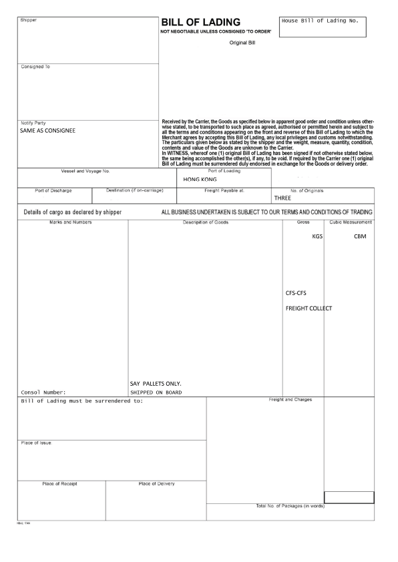The world of international shipping and logistics is full of complicated terms. If you're new to this world, then you're likely to be overwhelmed by all of these terms you must learn.
One of the essential terms to understand is 'Bill of Lading'. Here, WTA will explain what a Bill of Lading is and why it is crucial when shipping by sea.
What is a Bill of Lading?
When it comes to international shipping, the Bill of Lading has three main central functions. The Bill of Lading acts as a:
- Receipt of cargo:
First and foremost, the Bill of Lading acts as a receipt between buyer and seller.
The Bill of Lading is handed to the seller as proof that the goods have been delivered.
- Document of title
In other words, the Bill of Lading acts as proof of ownership. The seller receives the Bill of Lading upon pickup, and the buyer needs it to release the shipment.
- Evidence of a contract of carriage
The Bill of Lading also acts as a contract between seller and buyer, with the terms of the international transit being included on the Bill of Lading.
 Why a Bill of Lading is Important When Shipping by Sea
Why a Bill of Lading is Important When Shipping by Sea
The Bill of Lading relates specifically to sea freight and has become a vital document in the shipping process.
The Bill of Lading places responsibility on a carrier during shipping. The Bill of Lading requires the carrier to:
- Ensure cargo is correctly described
- Make sure the cargo is released to the correct party.
- Provide ample care for the goods while in the carrier's protection
In addition to the above purposes, the Bill of Lading can also help with the following:
- Tracking: The master Bill of Lading number can also be used for shipment tracking. Other necessary identifiers, such as container numbers, are also recorded on the Bill of Lading.
- Payment: The Bill of Lading is vital to the payment process, with the bill a necessary component of the letter of the credit process.
- Insurance claims: If a request is to be submitted, a BoL must be submitted in order to further the claim.
- Insurance liability: A freight forwarder may be liable for damage to cargo if the Bill of Lading has been issued in the freight forwarder's name.
If you have any more questions about shipping terms, WTA's experienced team is more than capable of answering them.






